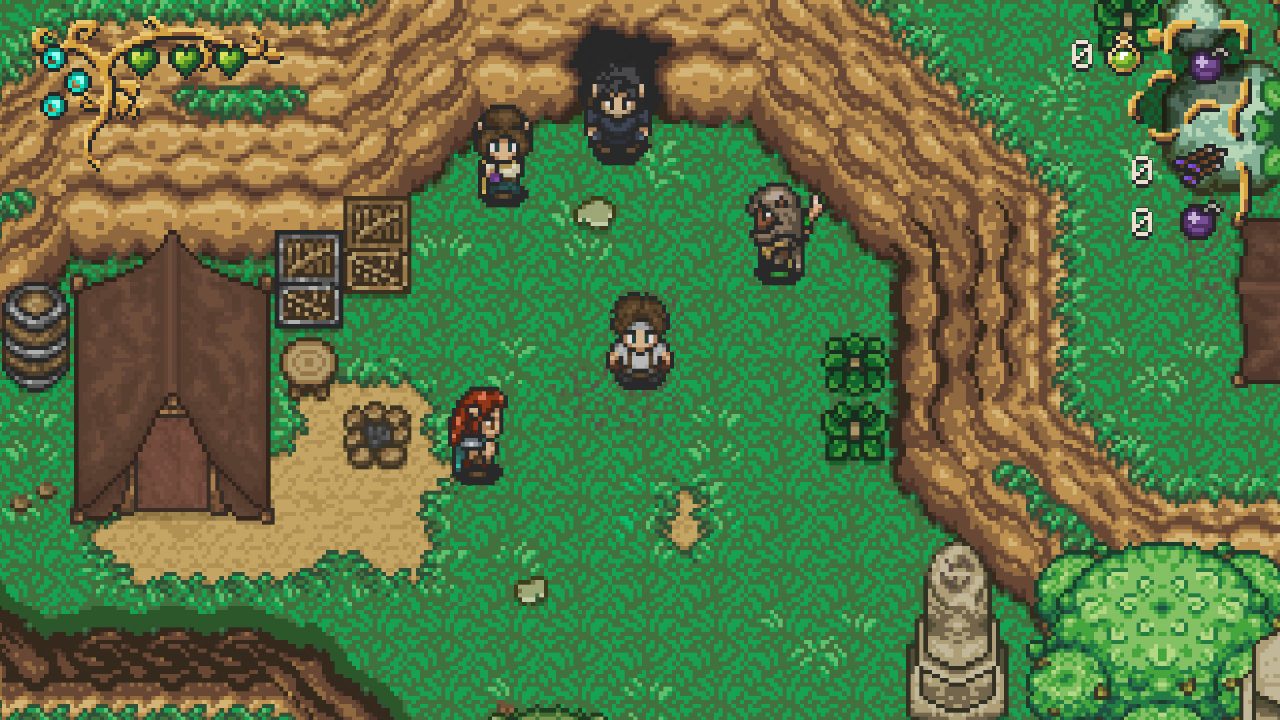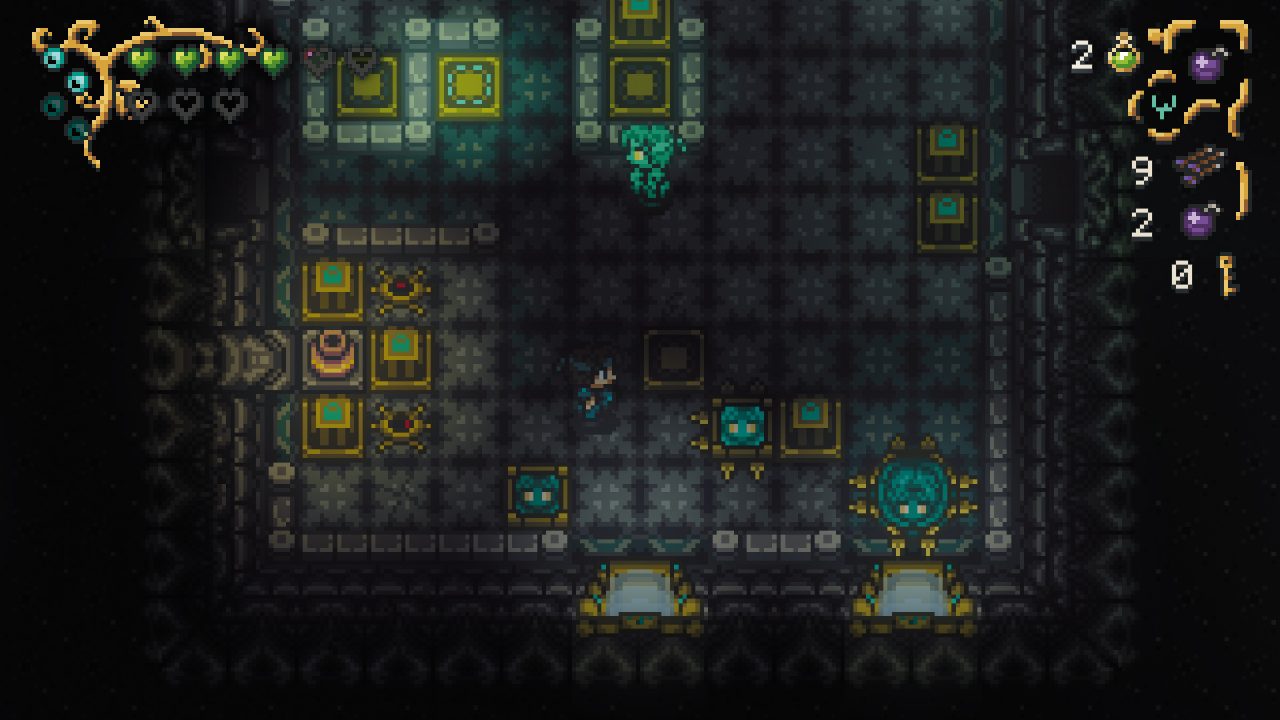Airoheart is an action RPG by Pixel Heart Studio that unabashedly wears its The Legend of Zelda: A Link to the Past influence on its sleeve. Skeptics would say too much so. Looking at Airoheart and A Link to the Past reminds me of 2008’s Black Sigil: Blade of the Exiled — a game that looked eerily similar to SNES classics like Chrono Trigger, but suffered from a cavalcade of poor design choices. Unfortunately, a similar fate befalls Airoheart.
Airoheart’s basic premise is that a power-hungry rabble-rouser named Xanatos is fomenting the seeds of war between two conflicting races in his search for pieces of the almighty Draoidh stone. Enter our unlikely hero Airoheart (Airo for short). After a neighborhood watch conscripts Airo to help them intercept enemy scouts seeking a Draoidh shard, we find out that Xanatos is Airo’s brother. Dun dun duuuun!
The story is more sinister than a typically heroic “save the princess” tale and has some decent plot beats. I also like that NPCs don’t just spout single lines; repeatedly talking to them yields witty dialogue. On the other hand, the overall storytelling is weak. Major events happen suddenly with no proper buildup or exposition, making the narrative relatively shallow.
Plot direction is often vague, and the quest journal doesn’t offer much information. This is because Airoheart is centered more on exploration and discoveries than rigidly following a tightly focused narrative. As a result, I spent as much time aimlessly wandering the world as I did earnestly pursuing the MacGuffin and uncovered many secrets as a result.

The gameplay resembles a 2D Zelda game where you explore an overworld, trawl dungeons, swing your weapon at enemies, wield magic, use various tools to solve puzzles, discover secrets, and try to save the day. Airoheart is an old-school game that requires you to figure things out for yourself with as few tutorials and as little handholding as possible. I learned the hard way that Airoheart necessitates a more patiently thoughtful approach than proverbial twitch-oriented ARPGs. Rushing in wildly swinging your sword is the quickest way to reach a Game Over, especially during boss fights (which are often battles of attrition).
Unlike Zelda games, however, Airoheart’s controls and interface leave something to be desired. The icon-based menu is somewhat clunky, and the pixilated font employed is too light. The stylized font used for dialogue is large enough, but could be smoother for easier legibility. Control schemes are remappable, which is great because the defaults for both gamepad and keyboard/mouse use are extremely awkward. I’m more comfortable using a gamepad in games like this, and I changed its mapping to suit me.
Sadly, control itself is not as tight, fluid, and responsive as I would like. Airo’s simultaneously sluggish and slippery movement was most noticeable against agile enemies that quickly darted around the screen like hopping mad crickets. I eventually got used to the control response, but not without often getting hit, falling off ledges, and dying. Dying respawns you at the nearest checkpoint with half your health but all your spoils, so you can try again, knowing what to expect. Between that and copious backtracking, progression (particularly in dungeons) often felt like one step forward but two steps back.

Questionable visual design made several dungeons a nuisance to trek through. Poor lighting and a murky color palette rendered many dank indoor environments too dark to navigate properly. I could hardly see the button tiles that triggered traps, the little holes in the walls that damaging arrows fly out of, or the tracks where I could move certain blocks around. I wished there was a way to increase illumination in those dungeons without goosing my monitor’s brightness; greater visibility would have made navigating them far more enjoyable.
The general aesthetics of the game are also nothing to write home about. Airoheart looks like a less vibrant A Link to the Past; the environment, character, and monster designs are as generic as they come. Airo is a mute protagonist who dresses more like someone in the next office cubicle than a fantasy hero. I get that he is meant to be an ordinary guy and a self-insert, but his standard outfit is startlingly bland. Generic is also how I would describe the forgettable, by-the-numbers fantasy music that adds nothing to the overall experience.
Airoheart is a pale imitation of the game it strives to be and could have benefited from more polish and flair. Unfortunately, any glimmers of potential are buried under flawed design and general mediocrity. The biggest flaw is undoubtedly Airoheart’s lack of identity. In its effort to be Zelda, Airoheart never had a chance to be Airoheart.



